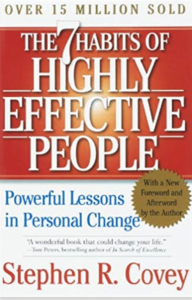How clear of a communicator are you?
Communication, real communication, is much more difficult than we realize. When coaching a group the other day, we were talking about managing remote teams and that poor communication showed up as a gap throughout the organization. It’s not surprising, an Interact study found that 69% of managers are often uncomfortable when communicating with employees, and that study was done pre-Covid!
When people are remote it is important to communicate clearly and articulately. Ask them if they have what they need to be successful in their jobs. Do they have the right technology, a strong internet connection and a quiet place to work? One senior manager talked about always communicating the WHAT and WHY. “What” are we working on relative to the big picture and “why” does it matter to the department or company. Another spoke about communicating with colleagues by asking them to repeat back what was said to them in their own words, such as saying, “Tell me what you just heard, in your own words”.
Always take the time needed to communicate effectively, it’s a time saver in the long run.
#WiseWords
“The single biggest problem in communication is
the illusion that it has taken place.”
Worth the Share
 The words we use matter. Having worked with so many clients to elevate their communication skills, I am especially sensitive to language that does not show us in our best light. This article from Fast Company highlights six words that make us sound weak and ineffective. It also explains why these words make even the most accomplished person sound less than
accomplished.
I would add to their list phrases like: Don’t you think? Is that okay? Make sense? Would it be okay? These phrases make us sound less than confident, and diminish our executive presence.
Read on to learn the six words… they will surprise you!
The words we use matter. Having worked with so many clients to elevate their communication skills, I am especially sensitive to language that does not show us in our best light. This article from Fast Company highlights six words that make us sound weak and ineffective. It also explains why these words make even the most accomplished person sound less than
accomplished.
I would add to their list phrases like: Don’t you think? Is that okay? Make sense? Would it be okay? These phrases make us sound less than confident, and diminish our executive presence.
Read on to learn the six words… they will surprise you!
And Finally...

Last week, I had the opportunity to participate in a full-day workshop for the 7 Habits of Highly Effective People. The book was originally published 32 years ago in 1989, and it’s still relevant today.
While the habits were written in order for a specific reason and there is a lot to be said for their effectiveness, Habit 5 resonates with me most. Habit 5 – “Seek first to understand then to be understood” because the key to this habit is all about listening and communication. To understand – listen, and to be understood – be clear, articulate and concise and make sure you are in dialogue with the other person.
Have a great week,
Mary Jo
To learn more about my 1:1 executive, communication or business growth coaching, custom virtual workshops, the Career Transition program or just to connect, you can reach me at info@mjrcac.com